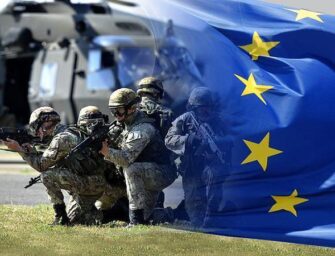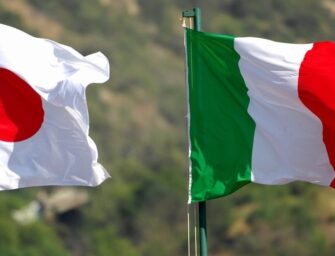Perspectives on the AUKUS partnership
On 15th
September 2021, the US, the UK, and Australia jointly announced the birth of a
new trilateral security partnership whereby, in Australian Prime Minister Scott
Morrison’s words, “our technology, our scientists, our
industry, our defense forces are all working together to deliver a safer and
more secure region that ultimately benefits all“; that region being
the Indo-Pacific.
The US so-called ‘pivot to Asia’ is an
expression which came to the fore during the Obama administration and which
aptly describes how American foreign policy priorities started shifting -i.e.
from intervention in the Middle East North Africa- to enhanced military,
economic and diplomatic presence further East, with a view to ultimately
counter-balance a growing Chinese influence. Some analysts have interpreted the
unwavering will to finally disengage from Afghanistan as another step towards acquiring
greater posture in the South China Sea and the Indian Ocean.
The new pact’s most immediate
consequence has consisted in the Australian Government’s cancellation of a multi-billion
dollar deal with France for the supply of diesel-powered submarines, which are
now going to be replaced by nuclear-powered ones produced onsite thanks to
technology sharing among the three like-minded partners. This abrupt twist which
caught the French, as well as Europe, totally off-guard, caused a serious
diplomatic row with Paris; many analysts have since been contemplating how this
latest crisis may hit long-term transatlantic relations.
But what is really at stake with this new alliance? And most interestingly, how did the Chinese media react to this news?
We asked some experts in the field to provide their perspectives. Here’s what they told us.
AUKUS – Chinese media coverage
Dr. Zhan Zhang
Research Fellow, China Media Observatory – Università della Svizzera Italiana (USI)
The same day when Washington announced the creation of the AUKUS, the news was immediately reported in China[1], highlighting the first measure of AUKUS is to work over the next 18 months to figure out how to best deliver the technology of a nuclear-powered submarine. According to the news search result on the Baidu platform on Sept.22 2021[2], within one week, there were around 65 news items headlined AUKUS from various Chinese news outlets[3]. By counting the news headline and the first two lead sentences of all the news articles into the analysis, the keywords map below clearly correspondents the focus of the Chinese narrative under three main themes during the past week:
- The creation of AUKUS is to counter China: For example, Knews [4] quoted different international news outlets, including the BBC, Reuters, and Deutsche Welle, stating that such a move is the Western allies pushing back on China’s rising power in the military and technology arenas. The voice of Chinese experts on international studies is also quoted in the article, saying that the intention of the creation of AUKUS was evident: to strengthen military deterrence against China and even prepare for a possible military conflict with China.
- International feedback from other countries, mostly opposing AUKUS: from the collected data, Chinese media discussed the reactions from over 13 different countries, the EU and NATO. France was highlighted the most, as the submarine deal blindsided the French, and Paris is furious about the tearing up of a 56 billion euros contract Australia agreed with Naval Group[5]. Reactions from Malaysia, Russia, New Zealand, Canada, Philippines, Indonesia, India, and the EU followed up, mostly being cautious and worrying as it may accelerate the nuclear weapon arms race in the region (i.e. Malaysia), and some were supporting as it could restore and maintain balance in the region (i.e. Philippines).
- China’s official opposition: Chinese media also gave a lot of space to the foreign ministry spokesman Zhao lijian, who commented the agreement as it “seriously undermines regional peace and stability and intensifies the arms race”[6]. China called for the relevant countries to “abandon the outdated Cold War zero-sum mentality and narrow geopolitical concepts”. In the same article, the Chinese Embassy in Australia is also quoted as an official source, advising Australia to “do more things to enhancing mutual trust and strengthening cooperation between the two countries, instead of bringing further damages and tensions against China”.
Last but not least, it is very interesting (and strange) that the state-run Xinhua News Agency didn’t record any news about AUKUS, zero results were found both on their official website and from the Factiva Database.

A call for more European engagement
Dr. Claudio Bertolotti
Director, START InSight
This new cooperation pact with Australia and the UK is coherent with a US long-term strategic vision which started to take shape in 2007 with the establishment of the Quadrilateral Security Dialogue -also known as QUAD- involving the United States, India, Japan, and Australia-; however, given its mainly consultative nature, such initiative did not provide practical solutions, nor answers, as it lacked a solid military structure. With the new AUKUS treaty in place, the US will now be provided with a landing place for its Navy but also with allies willing to deploy (nuclear-powered) weapons that, from the point of view of deterrence, are very relevant. Relations with China will further shift towards competition and hint at a potential conflict which, however, won’t suit either of them. As it pertains to Europe, the Biden administration seems to have deliberately bypassed partners with a long-term interest in the Pacific area, like France, while favouring Anglo-Saxon countries with whom it shares the same strategic vision; this is also consistent with the so-called ‘Five Eyes’ alliance (an intelligence-sharing group consisting of five English-speaking democracies -namely the US, the UK, Canada, Australia, and New Zealand- dating back to the Cold War era). Euro-Atlantic relations won’t suffer too much from what is only the latest, in a string of unilateral decisions; however, this situation should encourage Europe to adopt a different approach compared to China’s; one which does not merely contemplate expanding Chinese commercial activities across the Old Continent thanks to the New Silk Road, but is rather bent on widening and increasing European interests and initiatives towards China.
The AUKUS and Trans-Atlantic relations
Dr. Alessandro Politi
Director, NATO Defence College Foundation
The hullabaloo around the contract rescinded by Australia on 12 conventional attack submarines supplied by France in favour of eight new unspecified nuclear attack submarines (UK Astute class?) in the framework of the AUKUS agreement masks some fundamental. First, the Pacific has been essential for the USA since the Nineteenth century, while France and UK were de facto wiped out from it since 1941. Second, the EU as such has a lot to do with China, but nothing in strategic terms in the Pacific or on arms contracts. Third, France has a meaningful presence in the area, but that is it. Fourth, NATO is for now formulating its intentions on the Indo-Pacific and nothing more.
Of course, soured bilateral relations have a serious impact on wider fora at the political level and the USA with the intelligence Prism affair* and this recent move has dented the confidence of Berlin first and Paris now. Not very useful. We can only hope confidence, the glue of any covenant, might be restored.
AUKUS risks being an implicit weakening of the Quad and does not compensate for Washington’s confirmed absence from the Trans-Pacific Partnership. It is not just the economy, but chains of flowers are often more obliging than those of steel.
* surveillance programme used by the US National Security Agency (NSA) to collect private electronic data, which was exposed by Edward Snowden.
AUKUS – a tool in the US symmetrical competitive strategy
Dr. Niccolò Petrelli
author La Grande Strategia e il futuro della competizione USA-Cina
At first glance, the AUKUS pact could be interpreted as a predictable development within the framework of a decades’ old US military strategy addressing potential conflict in the Western Pacific. As a matter of fact, this agreement tells us much more about the nature of the US-China competition strategy. If one takes into consideration the recent withdrawal from Afghanistan, the strengthening of the QUAD, as well as the B3W initiative*, it seems reasonable to conclude that the Biden administration is developing a symmetrical competitive strategy aimed at overpowering its opponent by generating and deploying superior resources in each context where it enjoys a solid advantage (such as in the technological and military areas favoured by AUKUS) and resulting in a generalised “preponderance of power”.
*’ Build Back a Better World’ – an initiative launched by G7 countries in 2021 and based on infrastructure development for poorer countries, as an alternative to China’s Belt and Road
A security dilemma
Dr. Andrea Molle
Senior Research Fellow, START InSight
Assistant Professor in Political Science, Chapman University
For a Realist, AUKUS is the textbook case of a “security dilemma.” The decision to implement a trilateral pact between Australia, the United Kingdom, and the United States is justified as a way to increase the alliance security in the Indo-Pacific. However, as predictable, China saw it as a direct threat to its security. Prudently, the Chinese media depicted the Anglo-American move as a forerunner of a new era of political tensions. But the Chinese Government is officially signaling a change of posture, tossing the diplomatic equivalent of a “cease and desist” letter and accusing AUKUS to be the product of a Cold War mentality. Indeed, some commentators see a possibility for AUKUS to start a new Cold War, but there are a few essential differences that must be accounted for in order to forecast possible scenarios. First, the Cold War was a conflict between two superpowers in a now-gone bipolar world. Second, the US and USSR were not as economically and culturally interconnected as China is now with the rest of the world. The two blocs were colliding both ideologically and economically. Finally, the threat of mutually assured destruction (MAD) reasonably prevented an escalation and kept the “hot” conflict at the level of proxy wars. In the current multipolar system, defined by the downfall of the US as a global hegemon, a long-lasting deadlock like the Cold War is unlikely, and the pendulum will swing between a newfound balance and a regional hot war. The paradoxical result is that AUKUS could potentially decrease global security and stability, turning the current tensions into an out-and-out conflict, maybe by pushing Beijing to force the hand with Taiwan to signal they would not tolerate any meddling in a region they have always considered their backyard.
[1] The U.S., U.K. and Australia announced the establishment of a tripartite security partnership.
People’s Daily Online, 16.09.2021 http://world.people.com.cn/n1/2021/0916/c1002-32228933.html
[2] Baidu is a Chinese multinational technology company that offers the biggest search engine service in China
[3] The number of articles is retrieved on Baidu until 15.00 CET, 22.09.2021.
[4] How powerful is the new military alliance Knews, republished by netease, 16.09.2021: https://www.163.com/dy/article/GK26ANCG0514EGPO.html
[5] AUKUS agreed during G7, but Macron didn’t know anything, m4news, 19.09.2021. http://news.m4.cn/2021-09/1352804.shtml
[6] See above, KNews, 16.09.2021 and British Media worries that AUKUS agreement may anger China. Tencent News 17.09.2021. https://new.qq.com/omn/20210917/20210917A0FA1O00.html











































There are no comments
Add yours